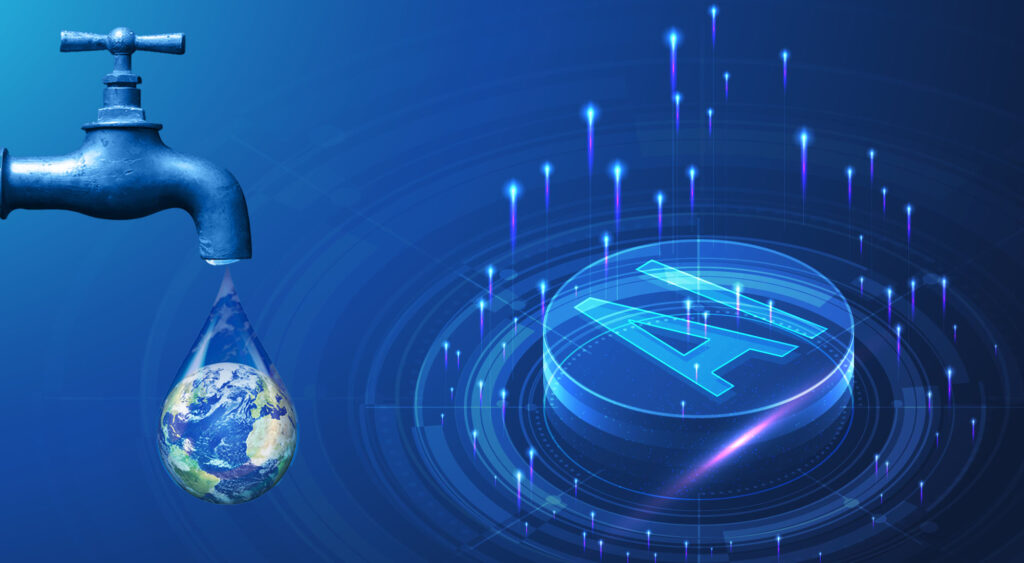
Water is a critical resource for human survival, agriculture, and industrial processes. Ensuring the safety and quality of stored water is vital to avoid health hazards and operational inefficiencies. Traditionally, water quality monitoring in storage tanks has been a manual, labor-intensive process prone to human error and inefficiencies. However, the integration of Artificial Intelligence (AI) has revolutionized this domain, offering precision, automation, and real-time insights.
The Importance of Water Quality Monitoring
Storage tanks are commonly used to store potable water, industrial fluids, and other liquids. Contaminants such as bacteria, algae, and chemical pollutants can compromise water quality, leading to health risks and potential damage to machinery. Regular monitoring ensures compliance with safety standards, prevents costly repairs, and protects public health. Despite its importance, traditional monitoring methods are often limited by delayed detection, inconsistent testing, and the inability to provide continuous data.
AI-Powered Water Quality Monitoring
AI has emerged as a game-changer in water quality monitoring, providing solutions that are faster, more accurate, and capable of processing vast amounts of data. AI systems leverage sensors, machine learning algorithms, and predictive analytics to track and assess various water quality parameters, including pH, turbidity, temperature, and microbial content.
1. Real-Time Data Collection and Analysis
AI-enabled sensors placed inside storage tanks continuously monitor water quality metrics. These sensors transmit data to AI systems in real time, allowing for immediate analysis. AI algorithms detect anomalies, such as a sudden change in pH levels or the presence of harmful microbes, and generate alerts to enable timely interventions. This real-time capability helps in preventing potential hazards before they escalate.
2. Predictive Maintenance
One of the most significant advantages of AI is its predictive capabilities. By analyzing historical and real-time data, AI systems can predict trends in water quality degradation. For instance, they can forecast the likelihood of microbial growth based on temperature and nutrient levels, enabling proactive measures like cleaning or chemical treatment. Predictive maintenance reduces downtime, minimizes operational costs, and extends the lifespan of storage tanks.
3. Automated Reporting and Compliance
AI simplifies regulatory compliance by automating data collection and report generation. These systems maintain detailed records of water quality parameters, which can be shared with regulatory authorities to demonstrate adherence to safety standards. Automation reduces the burden of manual documentation and eliminates errors associated with human oversight.
4. Enhanced Accuracy Through Machine Learning
Machine learning algorithms refine their accuracy over time by learning from historical data. They can identify subtle patterns and correlations that might be missed by traditional methods. For example, AI can differentiate between temporary fluctuations and long-term quality issues, ensuring that resources are focused on genuine problems.
Challenges and Future Prospects
While AI offers remarkable benefits, its implementation in water quality monitoring comes with challenges. Initial costs of AI-enabled systems and the need for technical expertise can be barriers for smaller organizations. Additionally, ensuring the reliability and durability of sensors in diverse environmental conditions is crucial.
Looking ahead, advancements in AI are expected to make water quality monitoring more accessible and efficient. Innovations in edge computing, IoT integration, and energy-efficient sensors will further enhance the adoption of AI-driven solutions.
Conclusion
AI has transformed water quality monitoring in storage tanks, delivering unprecedented levels of accuracy, efficiency, and reliability. By enabling real-time data analysis, predictive maintenance, and automated compliance, AI ensures that stored water remains safe and meets quality standards. As technology continues to evolve, the role of AI in water management will expand, contributing to sustainable and effective water resource management worldwide.


